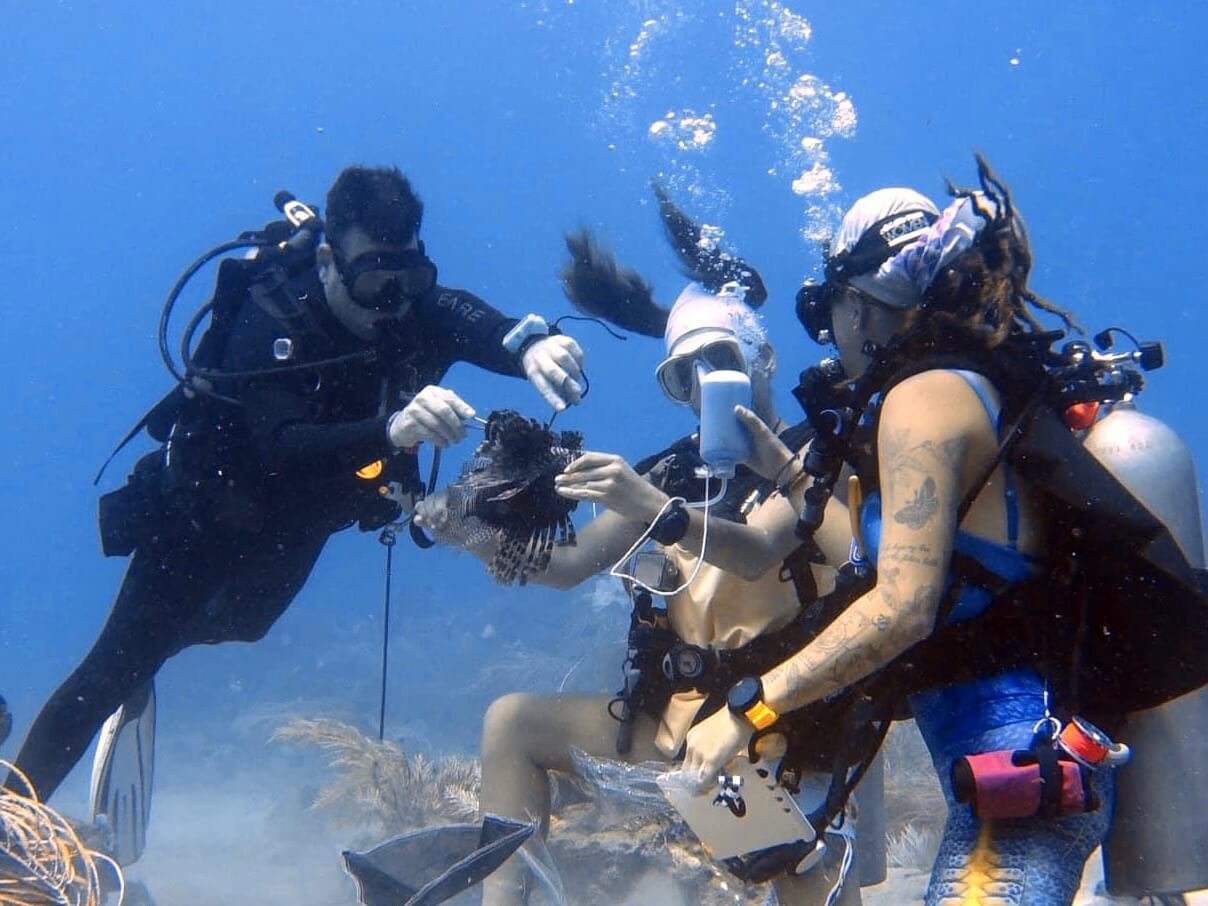Jake Levenson
Marine Biologist
Scientist, Innovator, Non-Profit Leader, Innovation Speaker
Hi, I’m Jake.
I was never a great student, at least not in the traditional sense.
Despite my love for science and learning, my academic experience was pretty miserable. But over time, I realized there’s a lot of learning that happens outside the classroom. Volunteering at a public aquarium, cleaning penguin poop and learning to scuba dive, I began to see that I could learn by doing. By the time I was elbow-deep in a dead fish during my college Biology of Fishes class, it all clicked. I was excelling in ways others struggled because of my hands-on experience.
That’s when I realized I learn best by screwing up—and then figuring out how to make things work. Embracing failure became key to my learning, and I started to understand that an academic grade doesn’t equate to your ability to do visionary science. Openness about my strengths and weaknesses helped me communicate better and collaborate more effectively. But I also discovered that academia loves to gatekeep, and that pissed me off. I wasn’t going to let the ivory tower stop me from studying marine life.
One day, a friend told me about a floating bar and restaurant where waitresses swore the same fish showed up every day when they turned on the generator. I wasn’t in grad school, and I’d never tagged an animal before, but I decided to do science anyway. I read everything I could about fish tagging, ordered spaghetti tags, caught fish with French fries, tagged over 100 of them, and started getting calls from people catching them as far away as Virginia and Delaware. That’s when I learned it’s not about resources—it’s about resourcefulness. And when you embrace that, you can find solutions in the most unexpected places.
Full Professional Bio and CV
Judah Jacob ‘Jake’ Levenson, is a marine biologist in the Environmental Studies Program at the U.S. Department of Interior’s Bureau of Ocean Energy Management (BOEM) and co-founder of the Conservation organization, Oceans Forward. His work focuses on driving innovative solutions to address complex challenges associated with better understanding the behavior, habitat, changing distribution, and ecosystem roles of protected species, especially the impact of energy development upon those species.
Levenson is a co-founder of Flukebook.org, a global effort that unites marine mammal scientists with the public aimed at increasing our understanding of whale migrations by allowing anyone with a camera to collaborate on photo-ID around the world.
Additionally, Levenson currently leads several innovative studies, including a research partnership with NASA to develop ways to leverage the changing space economy, including distributed small satellite networks, for improved animal telemetry. Also: Jake volunteers on the Caribbean island of Dominica (not the Dominican Republic) to help local ocean conservation initiatives.
Levenson holds a Bachelor’s degree from the University of New England, a Master’s degree from Boston University, and is currently pursuing his Ph.D at the University of Massachusetts-Boston where he is investigating the impact of open innovation on animal movement studies.
Jake’s volunteers on the island of Dominica, (not the DR) to help local ocean conservation initiatives. Faced with a shortage in grant opportunities, he's established the worlds only non profit conservation distillery, whose goal is to produce a world class rum, in the most environmentally friendly manner, to support ocean conservation for the long run.
Jake doesn’t drink.
Ph.D. (Expected 2025): Open Innovation and Marine Megafauna Management, University of Massachusetts-Boston
M.S. Criminal Justice Administration and Environmental Management, Boston University
B.S. in Zoology (Marine Science), University of New England
Resumé:
Selected Projects:
Selected Publications and Presentations:
WhaleAlert: Notifications of accurate whale management measures in real-time.
CubeSats: Partner with NASA to develop small satellites for animal telemetry.
Flukebook.org: Global whale and dolphin conservation efforts.
Multispecies Animal Re-ID Using a Large Community-Curated Dataset
OpenCTD (2024): A low-cost, open-source CTD for oceanographic data.
Whale sharks increase swimming effort while filter feeding (2020).




